|
Who doesn't love a good heist movie? Okay, that's a daft question, as there's not a genre in any artistic or entertainment media anywhere that's enjoyed by anything close to everyone. But come on, heist movies?
Back when I reviewed the Eureka DVD release of the Australian true-life crime drama, The Great Bookie Robbery (which really is worth seeing if you've never caught it), I pondered on the notion that, in crime movies at least, it's almost always so much easier for an audience to identify with the members of a criminal gang than the people they steal from. It matters little than in real life these are often unpleasant and amoral people, or that the money they are lifting from the bank technically belongs to the audience members who are cheering them on. The fact is that many of us regard banks as a necessary evil and those who run them as the sort of cold-hearted capitalists who keep the poor down and the wealthy in power. We thus get a bit of a thrill when all the expensive and complex security measures that they install are bypassed by a small band of determined and wily thieves. The more ingenious the plan, the bigger the kick it provides when the details become public knowledge. In films, it's this battle against the odds that casts the criminals as underdogs looking for a way to beat a system designed specifically to thwart their every move.
In most heist movies, the audience wants to see the criminal gang at the story's centre pull off the robbery they are only at the first stages of planning when we meet them. It's thus rare to find one that has us intermittently hoping their plans will fall flat before they get to the heist, but that's the case with the rarely seen and discussed British crime drama Bellman and True. It begins at a crucial point in a story that has already been running for some time as the opening credits fade, as man named Hiller (Bernard Hill) and his young stepson (Kieran O'Brien) – who is referred to in the film only as The Boy – steps off a West Country train at London's Paddington station and a short while later is being chased through the streets by two dodgy-looking geezers named Gort (Ken Bones) and Donkey (John Kavanagh). They elect to split up but Hiller doesn't get far. Nabbed at a tube station by the two men, he's led to a flat where Gort rolls up his sleeves in the way that always means business, takes out a Stanley knife and makes several sharp cuts to Hiller's stomach. Ouch. He's then taken to a deserted old mansion house where he has to answer to Salto (Richard Hope), an Oxbridge type whom we are prompted to assume is the leader of this particular gang. It's worth noting that no one offers to take Hiller to hospital to have those cuts stitched, and they are eventually forgotten. Erm…
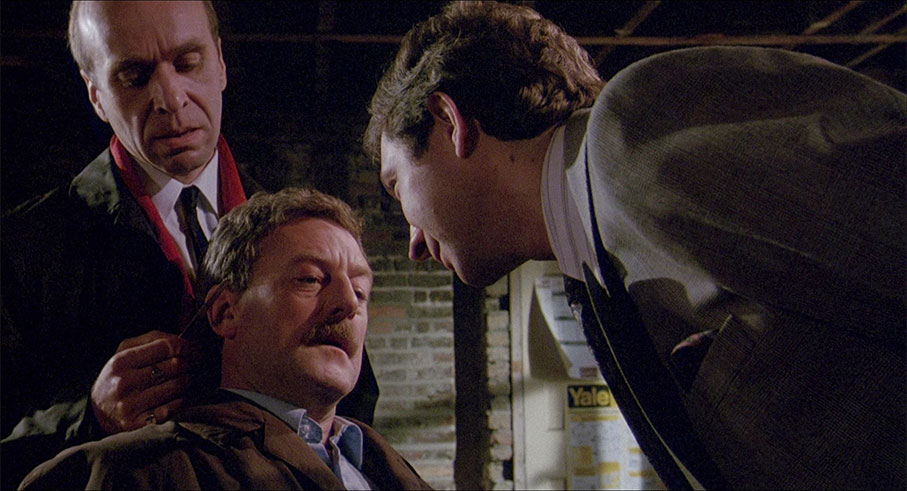
It transpires that Hiller, a former computer engineer for a major bank, was paid £1,000 by Salto to steal information on the bank's security system from the company's data banks, but instead just posted a spool of computer tape through Salto's door (good luck with that – computer tape spools of this era were considerably wider than the average letterbox) and legged it to Truro with the Boy and the money for an impromptu holiday. When the cash ran out, the two returned to London, where Salto and his boys had been patiently waiting. Having also nabbed the Boy, they are thus able to lean heavily on Hiller and force him to crack the code behind which the security information is hidden.
This first half is effectively setup for the robbery to come and for me is a bit of a mixed bag. The breaking of the code and the scenes in which ways are discussed to bypass technical problems are engagingly handled, being peppered with terminology that, at least from what I understand of the technology, is largely authentic, an air of realism enhanced by the do-it-yourself technological workarounds and the conviction with which the technobabble is delivered. If there's down side to this it's that I found the domestic scenes between Hiller and his stepson considerably less enthralling and almost started to see them as a distraction to a story I was far more interested in. Maybe that's just me. I rarely warm to children of any sort in movies and others will doubtless be captivated by gentle scenes in which Hiller tells his stepson allegorical stories, or those in which the Boy kicks off at the irritable Gort because he is bored. Even I, however, quickly realised that this bond between Hiller and the Boy would be central to the story, being used as leverage to enforce Hiller's compliance and providing an emotional prop for a man whose wife has done a runner and who needs a few shots of whisky to keep his hands steady when working.
We quickly learn that as well as being a software engineer of some skill, Hiller is adept and building small gadgets, a talent he uses primarily to amuse his stepson but that will also be central to his scheme to bypass the bank's most problematic alarm system. It's a plan that gets the thumbs-up from the Bellman of the title, a nickname for an expert in alarms (played by Peter Howell, so memorable as the borstal governor in the film version of Scum), who having given Hiller's proposals the green light then drops out of the project because there's nothing really left for him to do. Salto's crew, meanwhile, is led by a man known only as Guv'nor (Derek Newark), a brutish, old-school London villain who's not going to take any of the nervous Hiller's crap and who insists he come on the job with them to operate his gadgets and personally oversee the alarm disablement.
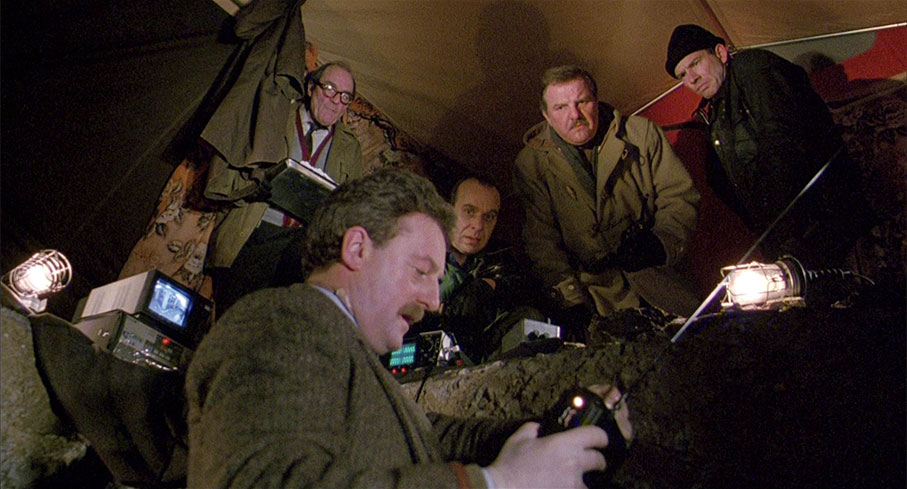
As is often the way, it's once the robbery begins that the film really hits its stride, in no small part because a plan that probably wouldn't work in the real world is so damned ingenious within the framework of the film that you can't help secretly suspecting that it would. I'm not going to go into details here as that would spoil what for me is one of the film's principal pleasures, as the intriguing but non-specific preparations made earlier are put to practical use and the purpose of each becomes gradually clear. There's also the hoped-for tension that arises from watching a group attempt to outwit the system against fearsome odds, which is heightened by a couple of inevitable hiccups whose nifty execution effectively counteracts their inevitability. There's more than a whiff of Michael Mann's Thief here, from the hijacking of security system's wiring to the use of a thermal lance to cut through the vault door. Intriguing, then, that the heist in this film is rumoured (at least according to director Richard Loncraine) to have been the inspiration for the real-world Hatton Garden safe deposit robbery in 2015.
There's an old-fashioned feel to the caper that stems only in part from technology that has long since been confined to computer museums and shelves in nostalgia-decorated gaming rooms. The bank robbers are all from that school of hard-nosed, London-accented heavies that fed so many supporting roles in The Sweeny and like-minded series and films, particularly Derek Newark's Guv'nor, the sort of archetypal London villain that you'll find in just about every British gangster movie from the 70s onwards but who is still appropriately imposing when the story demands, not least when he ensures the reluctant Hiller's compliance by jamming a sawn-off shotgun firmly against his arse and threatening to pull the trigger. Salto, on the other hand, is well-groomed and dressed and has that middle-class air of smug superiority and slight effeminacy (his insistence on repeatedly referring to Hiller as “dear heart” really grates after a while, which is doubtless the point) that was a once popular trait with which to saddle a character in the greed-driven 1980s if you wanted the audience to dislike them from the off. What does kick against expectations and (later) film convention is the casting of Bernard Hill in the lead role of Hiller, a still-rare case of a movie computer expert who is not a young hotshot or a colourful nerd but an everyday guy in his early forties who just happens to have an aptitude for computers and programming. Hill – a talented and hard-working Manchester-born actor who first found widespread recognition as the iconic Yosser Hughes in Alan Bleasdale's Boys From the Blackstuff (also produced by this film's Michael Wearing – oh where is its equivalent in quality and social relevance on TV today?) – captures Hiller's fearful reluctance and air of desperation-driven ingenuity so effectively that I really started to root for him and his safe escape from a situation that I found myself increasingly convinced would strip him of his freedom or even his life.
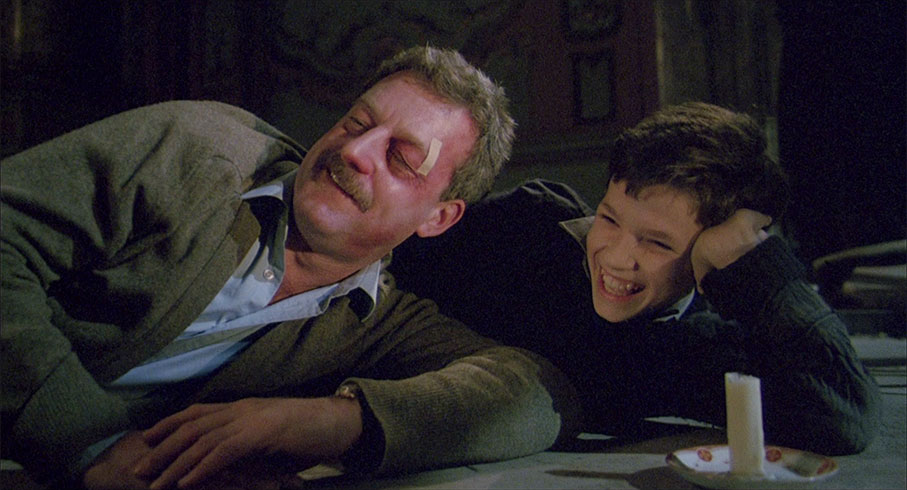
Despite being produced by George Harrison and Denis O'Brien's Handmade Films the same year as Bruce Robinson's now legendary Withnail and I, Bellman and True has effectively fallen under the radar in the years since its release. It wasn't a big hit and rarely gets discussed alongside other British gangster and crime films of the period, and it's every bit as British as a film like The Long Good Friday (another Handmade production) in its locations, its characters, and in its look and tone. Yes, there is a degree of inevitability to how some aspects of the story will unfold and ultimately resolve, but there is still enjoyment to be had from the ingenuity with which Hiller is able to engineer one of them, while another involving Hiller and Anna, a former sex worker hired by the gang to look after the Boy, initially seems to be playing completely to expectations, only to take a surprising turn and conclude in similarly unpredictable manner. It's offbeat moments like this that keep the film on the rails during its gear shifts in pace and the more formulaic elements of its plotting, and this later helped me to engage with a father-stepson relationship that I earlier found uninvolving. I'm not going to start claiming that Indicator have revived a forgotten masterpiece here, but just why this involving and intermittently gripping film has been spent so many years in the cinematic wilderness is still a bit of a mystery, and an injustice that the release of this disc will hopefully do its small part to correct.
When the film premiered at the 1987 London Film Festival in a pre-release version, it ran for eight minutes longer that the theatrical print, and that version has also been included on this disc. Even if you don't yet know the film off by heart, the additional material is easy to spot as it has been sourced from a standard definition original. It includes the following:
- Shots of Gort and Donkey buying and eating a Tandoori takeaway whilst shadowing Hiller and the Boy, during which Gort making a phone call (we presume to Salto) confirming the identity of their targets;
- The first time the Boy asks Hiller to tell him a story, which becomes a recurring theme as the film progresses;
- Hiller takes a break when trying to crack the computer code and is visited by Anna's young daughter and then Salto – a potential running joke is made about the fact that Hiller is wearing a coat indoors;
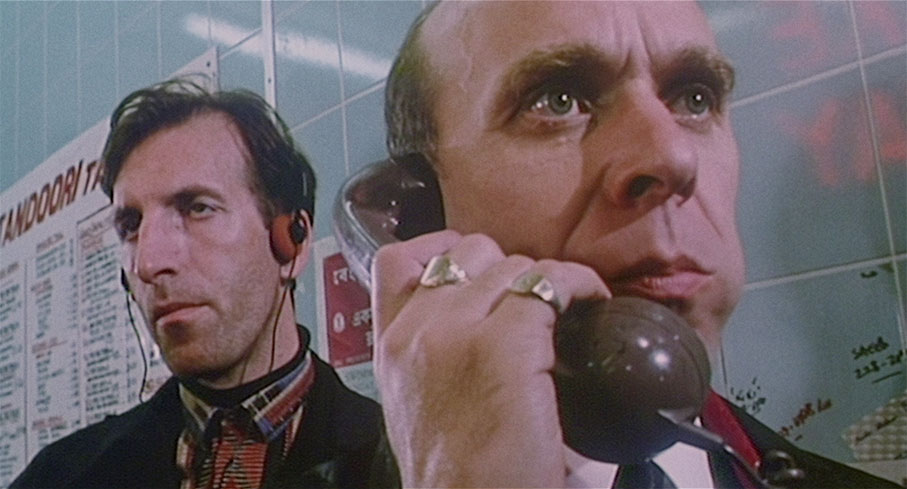
- A quiet sequence following the one where Hiller is threatened by the Guv'nor in which he is again visited by Anna's daughter (who was spying on him as he sat on the toilet crying), which is followed by a scene in which the Boy plays with a large remote control boat on a park lake while Hiller and Anna look on like happy parents, all under the watchful eye of Gort. That night Hiller asks the boy if he can borrow the boat, but for what is not made clear. This sequence makes sense of a later shot in which the Boy is seen dourly prodding this boat as it floats in a bath that it almost fills;
- A single crane shot of Smithfield Market that immediately precedes the moment when the butcher knocks on the door of the car in which the gang and Hiller are sitting.
A clean, crisply detailed 1.85:1 1080p transfer from a Handmade HD master that captures that glum look that British always seems to have in British films of the 70s and 80s (and, some might say, in real life today) but still with attractively rendered colours and very well balanced contrast whose solid black levels do not suck in the surrounding shadow detail. And yes, a fine film grain is visible.
The mono 1.0 soundtrack is not the usual Linear PCM, but DTS-HD Master Audio and although it lacks the bass response of a 5.1 surround track, the dialogue, effects and music are all very clear with no hint of distortion.
Optional subtitles for the deaf and hearing impaired have been included.
Richard Loncraine: Running in Traffic (23:43)
Director Richard Loncraine recalls the making of the film and has some interesting comments about the process and his approach to casting and filmmaking – he's not keen on reading actors and is not a fan of theatre (despite coming from a theatrical family), so tends to get a feel for whether an actor is right for the role by watching his or her other film and TV work. He also reveals he doesn't really like the editing process and even finds it boring. There are some engaging stories about hair-raising work by the stunt driver Jim Dowdall (who plays the gang's wheelman) and some over-enthusiasm on the part of the effects team that resulted in an explosion that literally blew Bernard Hill off his feet. Loncraine also confirms that the film was originally being written as a three-part series for TV but that it was cancelled before it went into production, which casts a curious light on the anonymously written claim on the film's IMDb page that this ultimately unproduced 150-minute TV version was screened on ITV on consecutive nights on 5-7 June 1989.
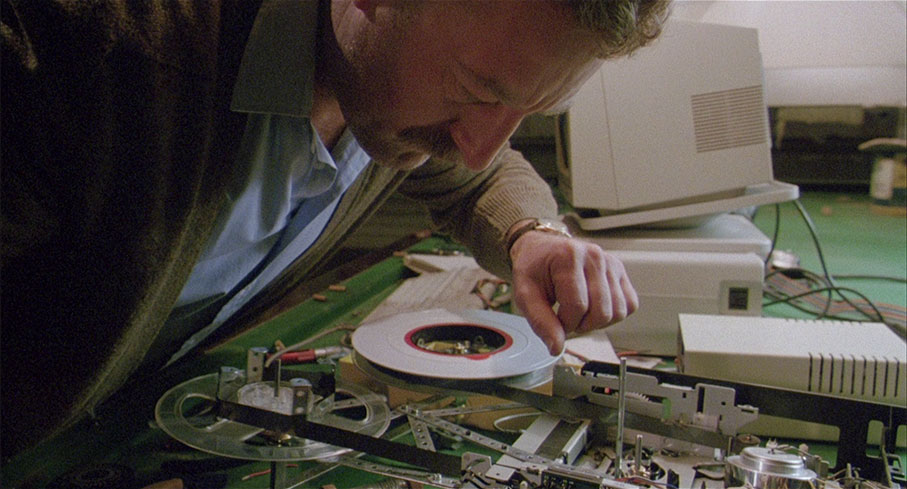
Kieran O'Brien: Just an Adventure (19:40)
The now adult actor Kieron O'Brien looks back at how he got into the trade and how he landed the role of the Boy in Bellman and True, an experience he still regards as a great adventure, hence the title of this piece. He recalls getting close to Bernard Hill and spending a lot of time with actor Ken Bones, who plays Gort, a character he has a hostile relationship with in the film, and tells an interesting story about filming the scene involving the robotic ‘tortoise'. He also remembers being impressed that director Richard Loncraine swore a lot, admits that they completely ignored the legal restrictions on the hours child actors are allowed to work and confesses to stealing cigarettes each day for producer Michael Wearing. He also discusses a sequence involving him and Anna that probably wouldn't be in the film if it was made today, one I suspect that would have been viewed very differently even in its day if the genders of the adult and child had been reversed.
Desmond Lowden: Cracking the System (16:58)
Desmond Lowden, the author of the novel on which the film was based, looks back at his early film career and how he turned to writing to alleviate the boredom that came with being a second assistant editor. He has strong memories of the help he received from Arthur Alcott and of working with director Cy Enfield, whose advice helped shape the opening sequence of Bellman and True. Lowden outlines the story and one of its key themes, and discusses the book's ending, which is similar to that of the film and thus I'd save this extra for after the film itself. Actually, I'd save all of them for after the main feature, whatever the film and whatever the disc.
Colin Towns: Trust Me (9:25)
Composer Colin Towns talks about the score for Bellman and True, which remains one of his favourites, and the man has written his share of film and TV music. He talks about slowing down a piano to audibly echo the slow-motion visuals of the opening sequence, points out for us non-musicians how important it is to take on board what sound effects might be added to an action sequence before writing the music, and like others interviewed here, has only good things to say about producer Richard Wearing.
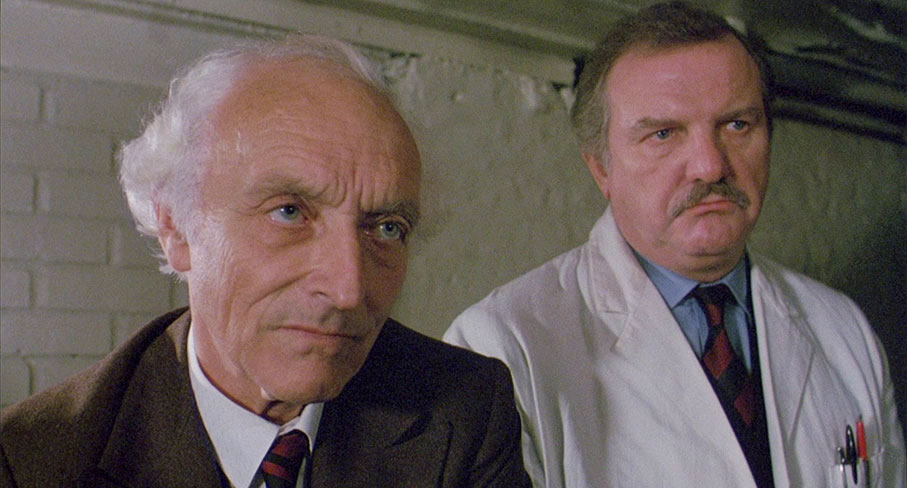
Theatrical Trailer (3:13)
A workmanlike sell that bristles with action and does technically include what could be counted as spoilers but they fly past so quickly they probably won't function as such. Includes one shot that was cut from the theatrical release.
Image Gallery
45 screens of promotional photos and poster imagery.
Booklet
The lead essay here is by Kevin Lyons, who provides a detailed look at the inception and making of the film and an overview of its mixed critical reception. Next is a very useful piece that breaks down the 19th Century Cumbrian song, D'ye ken John Peel, from which the film takes its title. This is followed by a 2011 interview with Bernard Hill conducted at the Norwich Film Festival, after which we have some examples of the mixed critical reception that greeted the film on its release. Promotional imagery and full credits for the film are also included.
Some of the hardest films to write about are those that you like but don't feel particularly passionate about, and that's certainly the case with me and Bellman and True. What I will say is that when it hits its stride it really delivers, and the planning and execution of the bank heist is worth seeing the film for alone, though I'm sure others will also get more out of the family drama than I did. As ever, Indicator have delivered the goods, with a strong transfer and some very worthwhile special features, and for that and my hope that the film finds the audience that has oddly eluded it since its release, the disc comes warmly recommended.
|